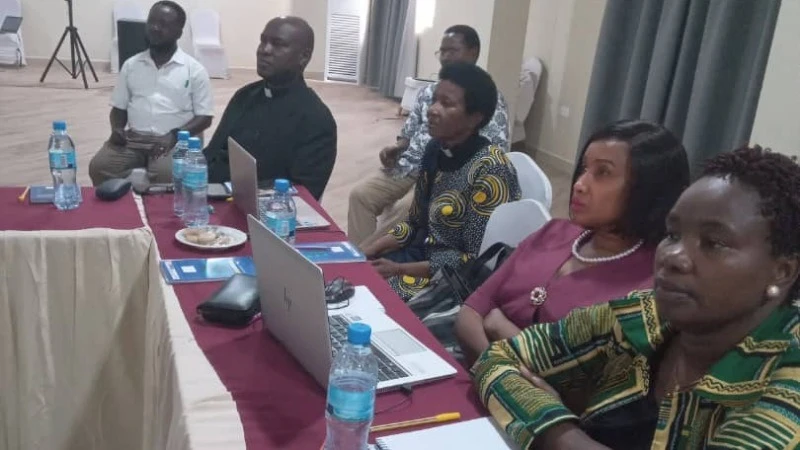New UN tax convention set to enhance grobal financial transparency, cooperation and justice

0N 2022, African Ministers of Finance and Economic Planing met during an annual meeting where they made a recomandetion that the United Nation (UN) Secretary General should start the process towards a UN Tax Convention.
UN Tax Convention are international treaties to which countries sign up and ratify to become bound to the treaty’s provisions by international law. The Proposal was filed by African group at the UN, on behalf of the group at the United Nations, Nigeria has tabled a draft resolution calling for the negotiation of a comprehensive UN Convention on Tax.
Last year, following the addaption of the resolution toward UN Tax Convention, countries met again at the UN they adopted the resolution that will now get a UN framework convention on international corporatoonon tax matters.
Processes towards UN Tax Convention started in 2022 when the resolution was adopted whereas this year the process of developing terms of reference for UN convention continue.
Faith leaders, Civil Society Organisation(CSOs), tax experts, decision makers and faith champions met in Dodoma region last weekend whereas they underscored the need for the government, CSOs Member of Parliament and experts to take part in the process towards UN tax convention due to its impontance to the country.
Francis Kairu, is a Policy Adviser at Tax Justice Network for Africa (TJNA), he stressed that no country should be left behind during the process, considering that next year's the process for developing the text of the convention will effectively start.
"Countries need to articulate issues that matters to them and make it clear things that the convention makes sense for each country.Tanzania as one of the African countries should play its role, by ensuring it is well represented through out the process", Kairu advised.
The UN tax convention is of much impontance for Africa due to the fact that it will adress a number of challenges such as transfer pricing, ensure fair and transparency tax system, equitable standard on corporate taxation and tax justice.
Dr. Ntui Pansian, a Lecturer at Saint Augustine University highlighted that "Africa need UN tax convention because the content has been losing a lot of its resources through different multnational companies. He said it is hightime for Africa to unite with the world especialy UN to ensure a smooth journey toward getting UN tax convention".
There are multnational companies with some subsdiary in the continent where transfer pricing has been very big problem, therefore with the UN Tax convention this can be adressed.
Dr. Pansian added that the UN tax convention is most impontant because the countries work togather, adding that every investor in world get a fair share thus avoiding ilicit transfer of fund and wastage of African resources.
"This should be just a starting point;we can move to other conventions like accounting issues because the representation of Africans in accounting standard it is too low", said the tax expert.
Father Florence Rutahiwa from Tanzania Epscopal Conference (TEC) said that the UN tax conventoon will adress the existing chalenges of digital taxation which is curently facing most of African coutries.
Rev. Modest Pesha a National Coordinator ACT Alliance Tanzania Forum at Christian Council of Tanzania (CCT) said the UN tax convention is more useful because it will promote fairness toward developing countries.
Piusi Ngirwa, Program Officer at the Anglican Church Diociese of Morogoro said the UN tax conventions are important to African because it include provisions for the exchange of information between countries, which can help combat tax evasion and promote transparency in financial transactions.
Ngirwa said, tax conventions can include measures that ensure individuals, busneneses and companies pay their fair share of taxes in each country where they are invested.
Having tax conventions in place can make a country more attractive to foreign investors by providing certainty and clarity regarding their tax obligations.
Can help to stimulate economic and development.
Hellen Massawe a Program Officer at Policy forum said African countries needs UN Tax Convention as it will become a platform where countries ideas on grobal tax standard will be included to the framework.
"We belive that under the UN tax convention, Africans will be able to provide their inputs on how the grobal tax standard should be", She said.
Arcording to Tax Justice Network, for over 50 years, the international tax rules have been primarily determined by the OECD, a small club of rich countries among which are some of the world’s biggest tax havens. This has brought about a global tax system that causes countries around the world to lose over $483 billion in tax every year to corporate tax abuse and private tax evasion.
Establishing a UN tax convention would allow international tax rules to be determined through a genuinely representative process at the UN that reflects the needs of countries around the world, instead of the desires a rich and powerful few.
The Norwegian Church Aid (NCA) in collaboration with Tax Justice Working Group Tanzania (TJWG) organized a two day workshop in Dodoma to initiate Tanzania national dialogue on the need to have an international body that will give opportunities for countries in the world to put an end to widespread tax abuse and hence ensure much money remains for national public spendings in areas such as healthcare, education, and other important services.
This came after the UN passed in Dec 2022 a resolution which opened a process for having a UN Tax Convention that will establish a global tax body that will safeguard countries efforts in fighting against tax abuse.
Top Headlines
© 2024 IPPMEDIA.COM. ALL RIGHTS RESERVED

























